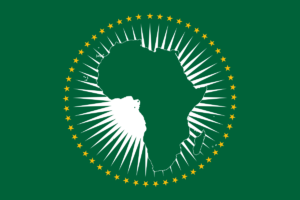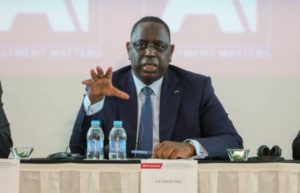 News
News
SIERRA LEONE EXPRESSES SUPPORT FOR THE RESTORATION OF THE…
The government of the Republic of Sierra Leone has expressed support for the restoration to seven, of the number of Judges of the Community Court of Justice, in order to enable the Court cope with the increasing number of cases filed before it. The number of cases filed before the Court reached a record 62 in 2018 while the number of cases pending before the stood at 108 at the end of 2018.
The country’s Vice President, Dr Mohamed Juldeh Jalloh assured a delegation of the Court on March 11 2019 that the country is willing to work with the other Member State of the 15-member Community for the restoration.
The number of judges of the Court were reduced to five from seven in 2018 as part of the restructuring of the Community and it’s institutions.
The Vice President also expressed support for staggering of the tenure of the Judges in order to retain institutional memory which will promote to greater efficiency of the Court.
Dr Jalloh told the delegation, led by its President, Honorable Justice Edward Amoako Asante, that the country was also mulling the construction of an ECOWAS house in the country and working with the Community for the setting up of an early warning office in Sierra Leone, one of the conflict prevention and resolution mechanisms of the Community.
Earlier, the President of the Court, Honorable Justice Asante had told the Vice President that the visit was designed as part of the advocacy component of a week long outreach programme in the country in order to improve the awareness of the Court among the citizens.
He spoke of the need to align the tenure of judges of the Court with those of other international Courts, some of which have five years renewable for their judges while others have seven years non-renewable.
The delegation, which also included the Vice President and the other judges, had earlier visited the Chief Justice, Justice Desmond Babatunde Edwards, who praised the Court for undertaking the campaign as it would help plug the gaps in citizen awareness of the Court and improve citizen patronage.
During the week long outreach, the delegation which also includes staff of the Registry as well as Research and Documentation Department, will undertake a stakeholder sensitization, a Special Forum with Lawyers and Law Students and a Judicial Dialogue with the country’s Judges.
This inaugural outreach campaign, will also include a Town Hall meeting involving Ministers, Journalists, Representatives of Civil Society Organisations, government officials, Women groups, Law enforcement agents, Students, ECOWAS Ambassadors and Market women.
Source: courtecowas.org


